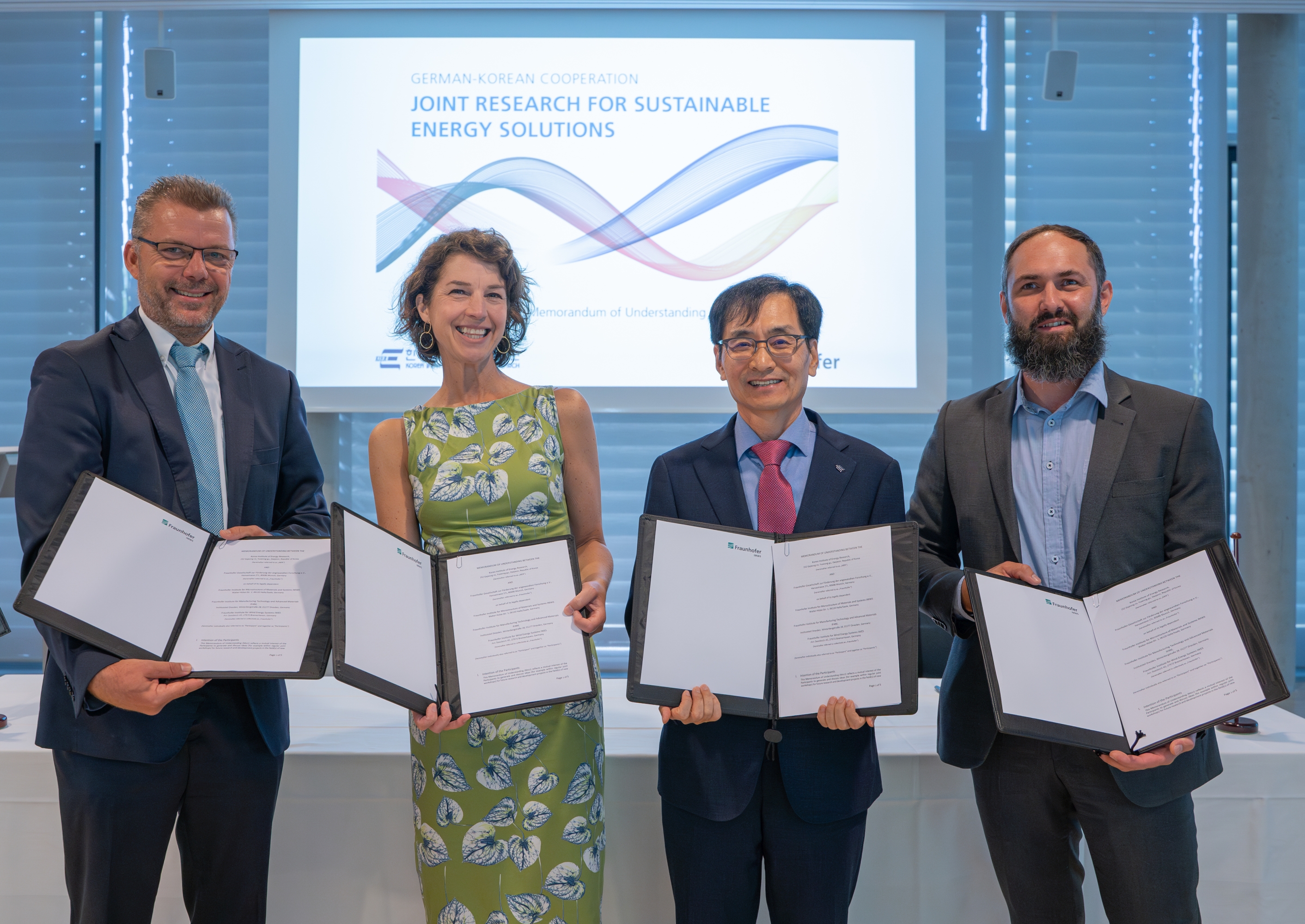Cooperation for a faster establishment of a hydrogen economy
Three Fraunhofer Institutes and the Korean Institute of Energy Research (KIER) want to intensify their exchange on hydrogen, photovoltaics and wind energy topics. To this end, a cooperation agreement was signed today in Halle (Saale). The Fraunhofer Institute for Microstructure of Materials and Systems IMWS, the Fraunhofer Institute for Manufacturing Technology and Advanced Materials IFAM, Dresden Branch and the Fraunhofer Institute for Wind Energy Systems IWES are involved. The collaboration is intended to support the faster establishment of a hydrogen economy and sustainable energy supply in South Korea and Germany.

The "Memorandum of Understanding" with KIER aims to develop cutting-edge technology solutions for modern photovoltaic and wind energy systems as well as hydrogen production and use. A special focus is placed on materials development, the integration of new solutions into energy systems and the suitability of the approaches for industrial application. Joint research projects and workshops, for example, are planned as part of the collaboration, which is initially scheduled to run for three years.
KIER is contributing its outstanding expertise in the areas of material design and systems engineering, while the Fraunhofer IMWS is contributing its extensive experience in solar technologies and material diagnostics for hydrogen applications. Fraunhofer IFAM is providing support with its excellent know-how in the field of alkaline electrolysis, while Fraunhofer IWES is contributing its expertise in the use of wind energy for the production of green hydrogen and large-scale test infrastructures in the energy sector. All three Fraunhofer Institutes can build on successful past collaborations with KIER.
"Greenhouse gas neutrality, energy security and intelligent energy systems are challenges that many leading industrial nations are facing. We want to develop first-class solutions in close cooperation with industry. International cooperation is a very important instrument here. I am therefore very pleased about the intensified exchange with Fraunhofer," says Dr. Chang-Keun Yi, President of KIER.
Prof. Dr. Erica Lilleodden, Director of the Fraunhofer IMWS, emphasizes: "The international exchange of experience can make an important contribution to a sustainable energy supply in Germany and South Korea. We also want to strengthen the growth opportunities for innovative companies in the energy sector through our increased cooperation."
Prof. Dr. Thomas Weißgärber, Director of Fraunhofer IFAM and responsible for Dresden Branch, commented on the signing: "Pooling expertise from different disciplines can pave the way for providing tailor-made materials and methods for the energy system of the future. I am very much looking forward to working with my colleagues from KIER, who will contribute complementary expertise."
Prof. Dr. Jan Wenske, Deputy Director of Fraunhofer IWES, points out: "Fraunhofer's extensive experience in industrial innovation and application-oriented research is a key success factor in establishing a sustainable energy system. South Korea has very similar challenges to Germany in this area - both sides can only benefit from the cooperation."